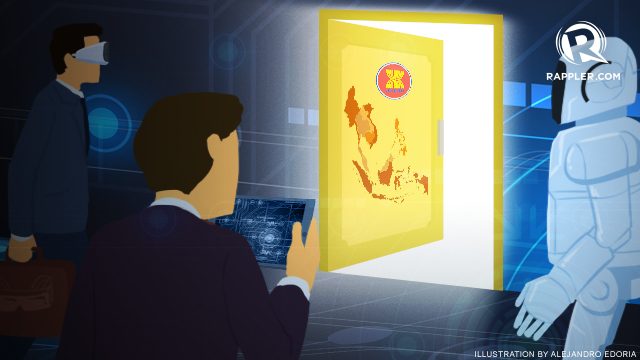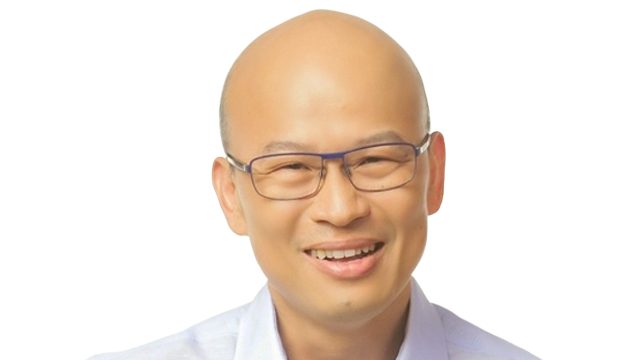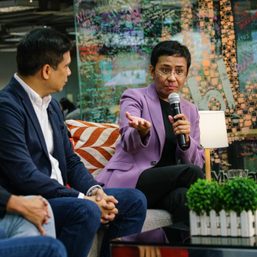SUMMARY
This is AI generated summarization, which may have errors. For context, always refer to the full article.

MANILA, Philippines – A cursory glance at any list of the richest people will give you a glimpse of where the world is heading. While railroad and oil tycoons used to dictate the world’s markets, tech tycoons now do so from their laptops.
Even the World Economic Forum in Davos, the biggest symbol of the world’s economic elite, spelled it out when it emphasized that the Fourth Industrial Revolution would center around innovation.
Countries around the world are scrambling to set up their own innovation-based ecosystems in a mad dash to recreate Silicon Valley or its Chinese equivalent, Zhongguancun, in their own backyards.
One successful tech entrepreneur has an interesting take on developing local innovation, however: More often than not, innovation comes from outside.
“Half of all the founders in Silicon Valley, arguably the most innovative place in the world at the moment, were born outside the US,” said Peng Ong, founder and managing director of Singapore-based venture capital firm Monk’s Hill Ventures, in an interview with Rappler.
Ong is set to be one of the main speakers at Rappler’s 3rd #ThinkPH summit, Back to Disruptive Basics, on Thursday, July 21. (READ: Agenda for #ThinkPH 2016)
In Silicon Valley, bigwigs include Russian-born Google co-founder Sergey Brin, South African-born Tesla founder Elon Musk, and Paris-born eBay co-founder Pierre Omidyar.
China is different as wealth creation in technology there is mostly steered by locals, but even then, Ong noted that many successful entrepreneurs in China are returnees.
For instance, Baidu co-founders Robin Li and Eric Xu both worked in Silicon Valley before returning home and starting China’s largest search engine.
“That’s a very important observation if you want to understand the nature of innovation,” Ong said. “It tells you that either the very best talent or people [who] are somehow much more driven to create innovation are from somewhere else. Immigrants, basically.”
For innovation to happen, perspectives from the outside are crucial.
“The influence of the thinking of people who have gone away is important because innovation is first and foremost about expertise,” Ong said, adding that this is particularly relevant in developing regions like Southeast Asia.
Letting expertise in
Ong emphasized that it’s possible to work around a lot of things, but talent is not one of them.
Singapore, he gave as an example, created funds to allow people to aggressively invest in companies. The problem right now, however, is that getting residency for engineers is not easy.
This has slowed down the growth of core engineering teams – the heart of startups – and the growth of the ecosystem.
“Where would you have learned to do tech companies in the Philippines in the past? And it’s the same for Singapore and Indonesia and the rest of the region. It’s how you start, you can’t be an expert from nothing,” Ong said.
The single most important policy to build an ecosystem is essentially to open up borders for people who want to work in the country or region.
“We don’t have enough trained people in Southeast Asia, and this is something you’re doing in the country for the first time so you need to bootstrap somehow,” Ong said.
“After all, even the most innovation-driven economy in the world, Silicon Valley, has half its founders who are immigrants. What chance do we have if you don’t open up your borders to create this?”

Driving Southeast Asia innovation
Ong is in a unique position to appreciate this trend, having been a serial entrepreneur and investor in both Silicon Valley and China.
The companies he founded now have a total annual turnover in the billions of dollars. Perhaps most known for co-founding online dating service Match.com, Ong also started content management service Interwoven which went public on the NASDAQ, as well as Accentuate which was acquired by IBM.
In China, Ong was part of GSR Ventures, an early backer of Didi Chuxing, the world’s largest ride-hailing platform in terms of active users – larger even than Uber. Didi Chuxing recently closed a $4.5-billion round of funding that included a billion-dollar investment from Apple.
Having made his mark, Ong has switched to investing in startups in Southeast Asia with the aim of making a larger impact.
Big tech firms operating in the country have managed to import successful Silicon Valley models such as transportation service Grab.
“Innovation doesn’t necessarily mean new ideas. Innovation most of the time is taking an old idea and applying it somewhere else or somewhat differently,” Ong said.
“A lot of people in Silicon Valley have this idea that innovation has to be totally new but there’s no such thing as totally new. Google was somewhat of a rip-off of a bunch of other search companies before it and Apple also took off from what Xerox was working on. So there are no new ideas, just old ideas looked at slightly differently,” he added.
Playbook already written
It is the ability to see these ideas and execute them that matters, according to Ong, who shared his strategy for investing: “We look for great entrepreneurs engaging in big chunks of the economy with technology. That’s it.”
He added that there are plenty of lucrative opportunities in the region – from fintech to logistics and all kinds of ecommerce.
“The good news for Southeast Asia is that the playbook has already been written to some extent in China and India,” Ong said.
“India is a little bit behind, but still somewhat ahead of Southeast Asia. So we know what’s going to happen, it’s not rocket science.”
The region doesn’t have the population base that China has, but if you look at what’s boomed in tech in China in the past decade or so – payments, ecommerce, logistics, among others – these will be taking off in the region, too.
“It will play out here but faster than it played out in China. It played out in China over 10 to 15 years,” Ong said. “It will play out over 5 years in Southeast Asia because we don’t have to relearn stuff that the Chinese already did.” – Rappler.com
If you want to know more about the impact of technology on society and exponential organizations, check the full agenda and list of speakers for #ThinkPH 2016 here.
Add a comment
How does this make you feel?





There are no comments yet. Add your comment to start the conversation.